I Ribelli della Montagna (“Rebels on the Mountain”)
–
When Larp teaches us about war
Can Playing Games Teach Us About War? Many Larps have handled this question before, but its pertinence certainly comes to mind when considering the efforts that have been put on designing “I Ribelli della Montagna”, an Italian Larp set in the early days of September 1944, as fascist Italy is crumbling from the defeat of Mussolini but fighting still rages on. In addition to being an extremely ambitious Larp, “Ribelli” was also the first of its kind to welcome international players, acting as in-game foreigners finding themselves taken in the drama of another country. This article will explore some design elements of this Larp, in keeping with its treatment of History as a narrative device.
“To kill is a regular verb. Evermore so, at war. One of the most regular ones, right after “to die” and “to long”. Lost, rage and fear melt together encrusting between your bones.”
Setting and context
The setting of Ribelli was inspired by the real-life events of the Marzabotto massacre of 1944, perpetrated as retaliation against civilians for their help towards the resistance. The fictional village of Montelupo served as backdrop in a no holds barred confrontation between Nazis, Fascists and rebel groups, while the civilians of the village, caught in-between the fray, strive to survive.
Established with a strong narrative frame, 360° visual aesthetics and mostly well-built and nuanced characters, the game showed promise and ambition. Created in the wake of 2015’s nationwide commemorations on the occasion of the 70th anniversary of the liberation of Italy from Nazi-Fascist rule, it was supported by the “ANPI”, the Italian Association of Partisans, and got in Italy a local and national media coverage.
Attention to visual detail and historical precision was considerable, especially in the research of uniforms and development of custom point-blank weapons that would look accurate. Although the antagonist factions provided most of the tensions and action over the course of the game, a lot of effort was put into character development and personal storylines that supported most of the narrative in a very effective way.
The game experience
Indeed, it can be underlined that the Nazi game was perhaps the most self-contained of the game, suffering from heavy constraints from the start. While some humanity was put in those characters, their function was mostly to serve as prime antagonist, resulting in several experiences of indirect bleed mentioned by players.
In the same way, combat sequences appeared somewhat weak in comparison, at least in the first run of the game. While the organization philosophy was to emphasize the narrative approach by erasing hit points and strict rulings, that aspect, unequally understood, resulted in many lost opportunities for those involved in combat.
However, where the thematic approach was concerned, the game appeared a true success. The purpose of the organization was, namely, to emphasize “the ethical choices the characters will be forced to face in game by the events”, and have them “try and tackle the tough question of “What would have I done, if I were there?”, through the themes of oppression, choice, and rebellion. From a game experience perspective, that approach enabled a tight-packed game, from an individual’s perspective as well as from the way anyone could be drawn into other character’s narratives.
Two particular examples come to mind:
- The role of religion: in a profoundly catholic country, the connection to religion, while not particularly emphasized per se, became a huge focus for a number of character, not only those defined as religious ones. Can faith become a solace in hard times? Can one keep, or find faith, when confronted to the horrors of war? Through these issues, times of prayer, far for being anecdotal, became genuine moments of bonding and character development
- Family and personal feuds: within the narratives, a lot of ancient wrong and grudges were established. The underlying issue was: should one pursue revenge or put aside their feelings for the greater good. In that instance, no easy or obvious answer was given.
“Some places I’ve been… you can’t help but think that God has forsaken them
So tell me… what if there are some places you can’t really come back from?”
Undergoing war: pressure and focus
In order to get the player to experience the hardship of war, the organizers emphasized that they would go for a lightly hardcore approach, putting pressure on the players through the common, but effective, means of sleep and food deprivation. Though part of the food gathering and processing was left into the hands of “bridge characters” (NPCs charged with coordination and formal tasks), a lot was left in the hands of the players themselves, with rationing, splitting resources and, for some, begging being part of the overall experience. Nighttime would be interrupted by war operations and air alert. Though the level of intensity might have greatly varied from player to player, their combination could prove very effective.
To finish, the last element pertaining to the understanding of war through this game would be the matter of focus. For most players, of Italian nationality, the game was a reflection of their own History and, from various accounts, got many players to have a deeper understanding of their past, or even their older relatives’ war stories.
For the international players (mostly playing as allied soldiers temporarily included in the partisans’ fights), part of the appeal of the experience was certainly to discover a History and experience of the war that would be very different from one’s own. Part of the Italian characters were English-speaking and would serve as in-game translators, while most players had to pretend not to understand English at all. This design was quite efficient in providing an extremely immersive experience, and very few times did the communication between characters become really strained. Again, this experience provided a rich ground to confront the different points of views about the war, in-game as well as out of character.
“Beauty in war time is a hidden place only glimpsed in tiny thoughts. Thoughts small enough to fit through the keyhole of this prison that’s the battlefield. The rest is torn between the sweet rush of the action and the almost unbearably slow passing of the hours while waiting.”
Conclusion
In my opinion, “I Ribelli della montagna” is a prime example of a game that, through a strong thematically-based design and focus on character narrative, did succeed in his original purpose, and would teach us a lot about war. Although the choice of dealing with WWII raised some legitimate controversy, the media attention and feedback was apparently mostly positive, since these difficult choices of context and narrative were obviously handled with a great amount of respect. This, in all, is a great reminder of the potential and value of such Larps.
Credits: Andrea Capone, Elio Biffi, Aladino Amantini, Andreana Vigone, Annalisa Corbo, Federico Barcella, Matteo Micelli, Mauro Vettori, Paolo Benedetti, for the association Terre Spezzate
Date: July 10-12, 2015 & July 17-19, 2015
Location: Villagio Delle Stelle, Lusernetta, Italy
Length: 40 hours of play, 3–4 hours of workshop (per run)
Players: 70 + NPCs
Participation Fee: €60
Game Mechanics: Playing to lose, safewords, pre-larp workshop, blank-firing firearms & boffer weapons
Website: http://www.grv.it/ribelli-english.html
Pictures: Alessandro Cugno – Cinemage
Resources
Article obviously inspired by
“Can Playing Games Teach Us About War?” – Eirik Fatland http://nordiclarptalks.org/can-playing-games-teach-us-about-war/
Quotes from
“Rebels of the Mountains” player guide, p4, http://www.grv.it/PlayersGuide-Ribelli.pdf
“Under a starry sky I see
A glimmer of hope and prosperity.
Under a starry sky comes the doubt how
The means to keep fighting on will carry on.
Under a starry sky I used to smile, whilst
Under a starry sky have made me frightened of the grave seriousness we’re in.
P. Radcliffe, 1944”
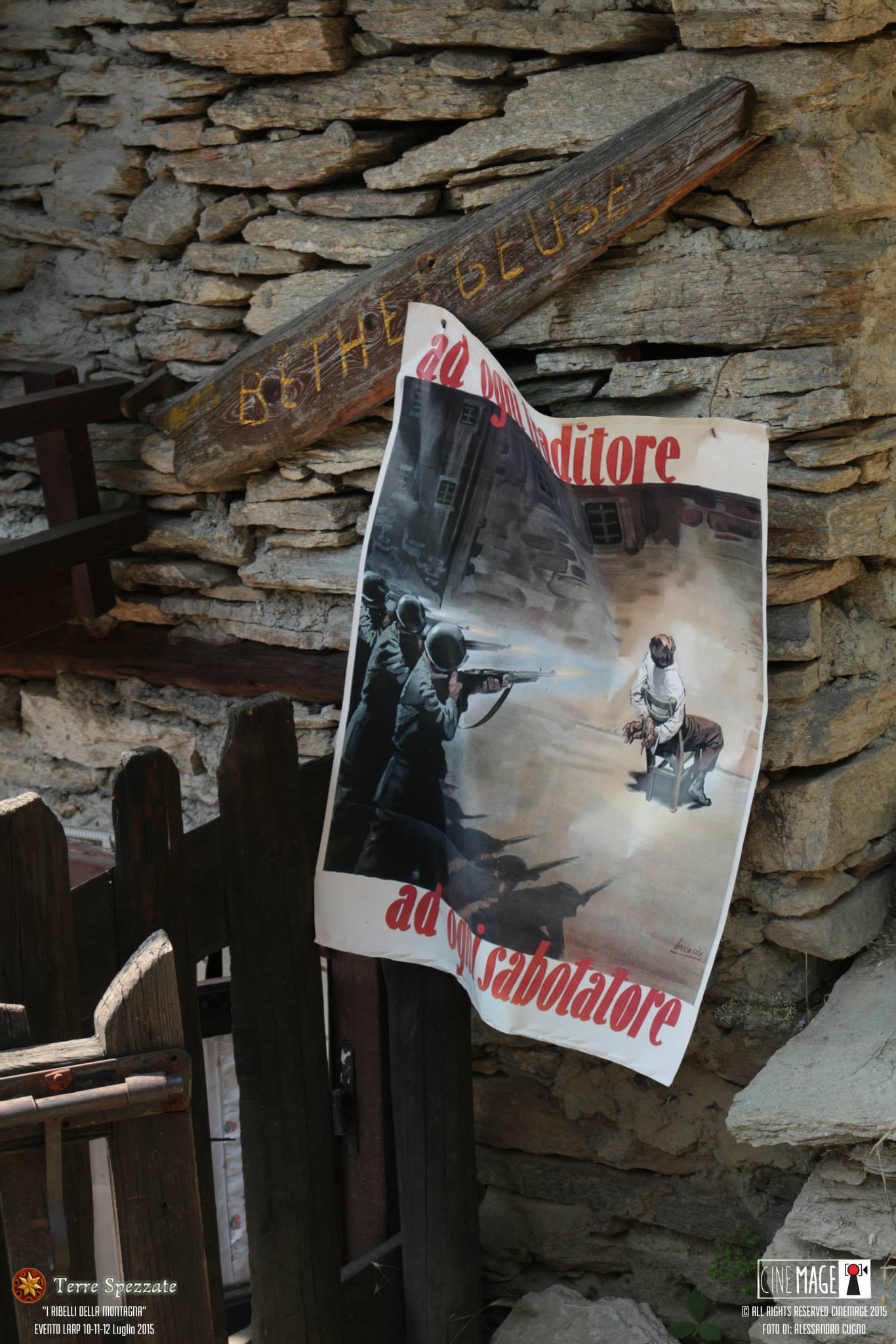
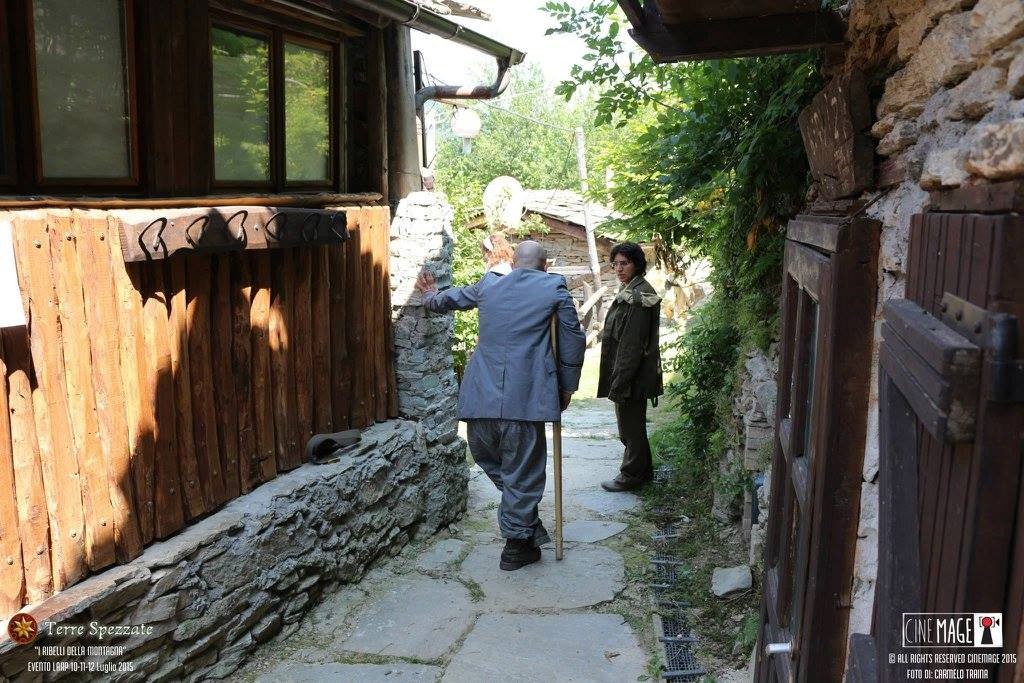
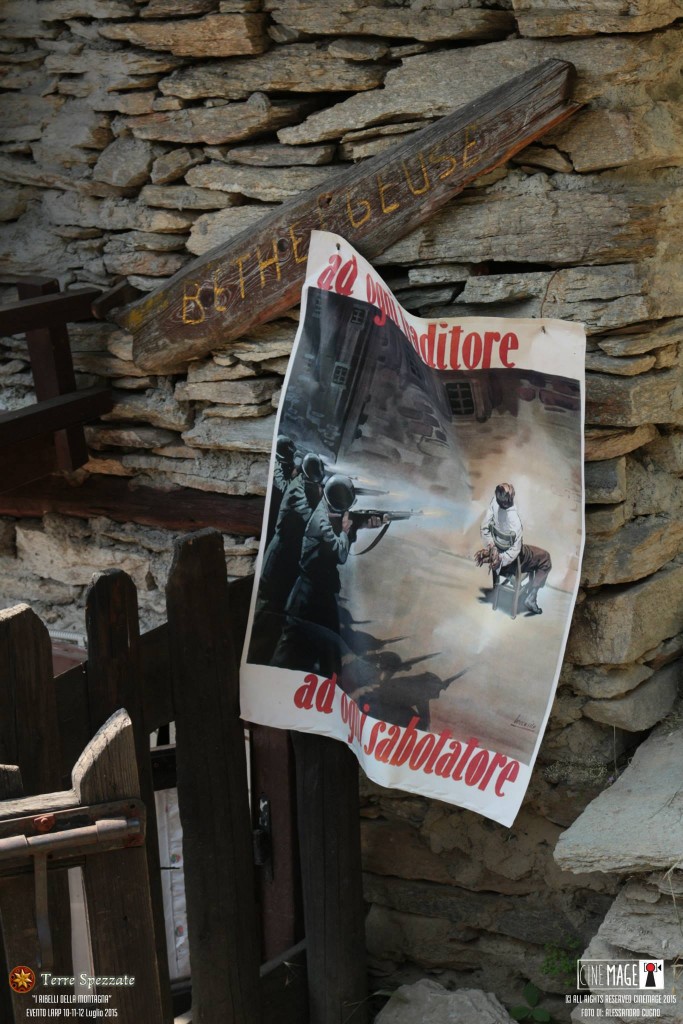
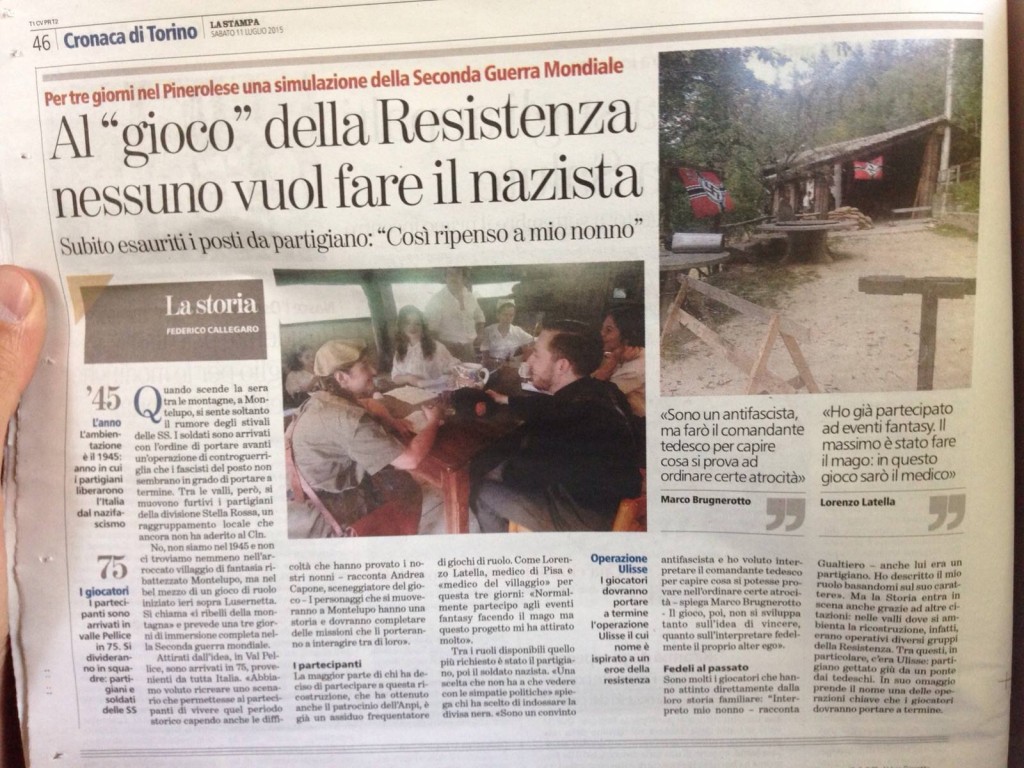
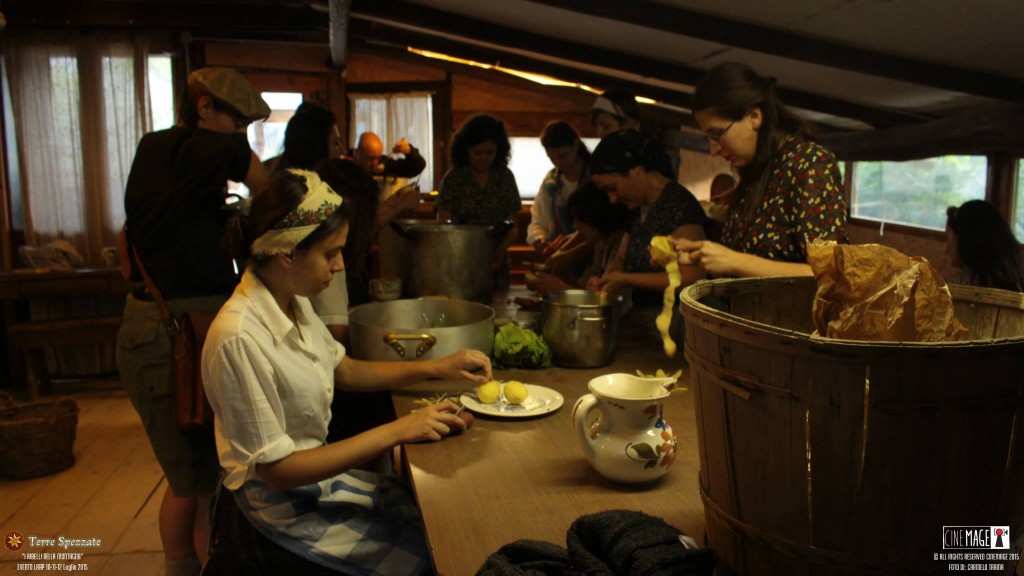
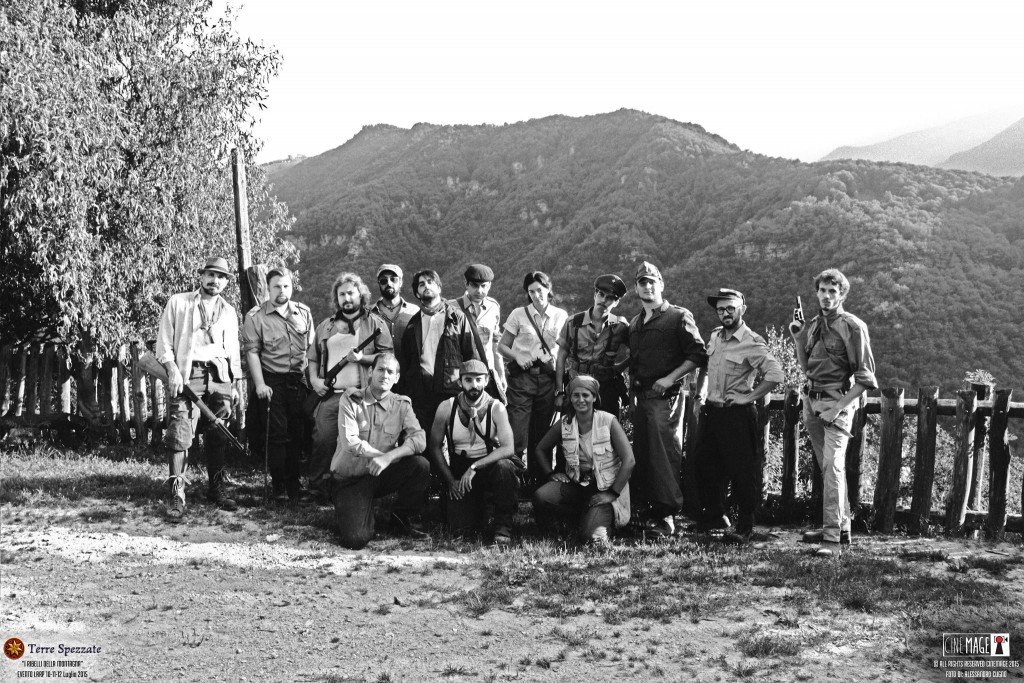
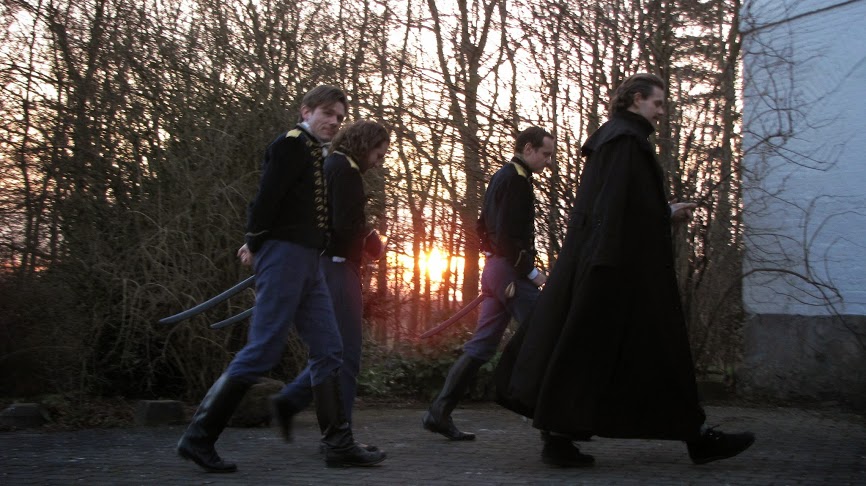
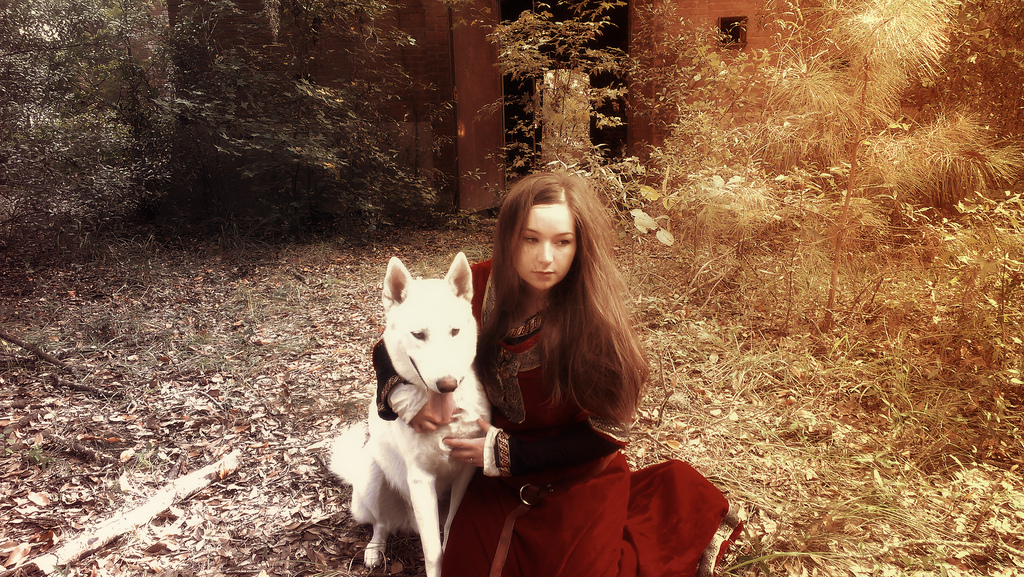
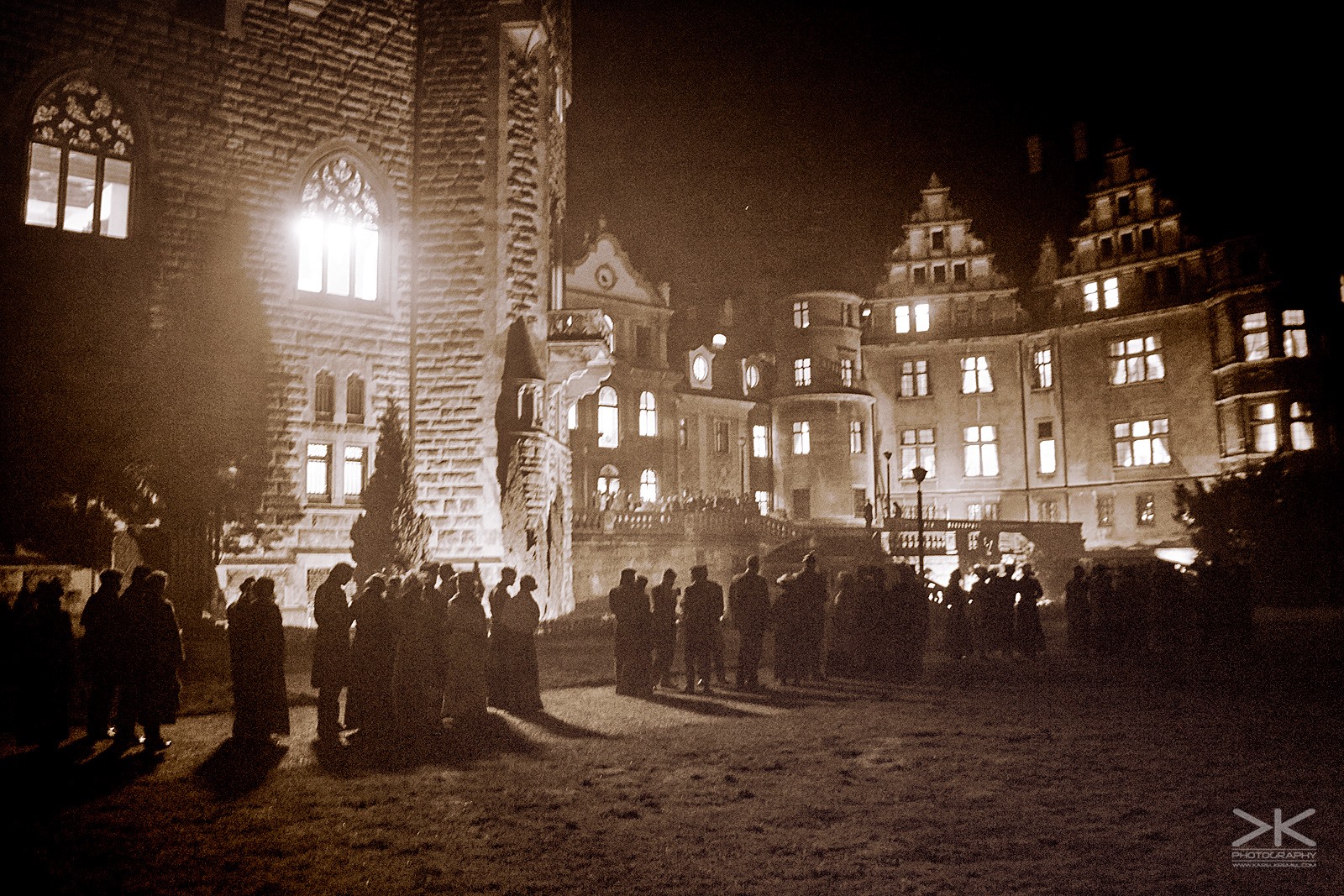
sqay2f
qhpjp8
0snsof
u926ai
wjs3bb
tfy13y
zlhokg
80am83